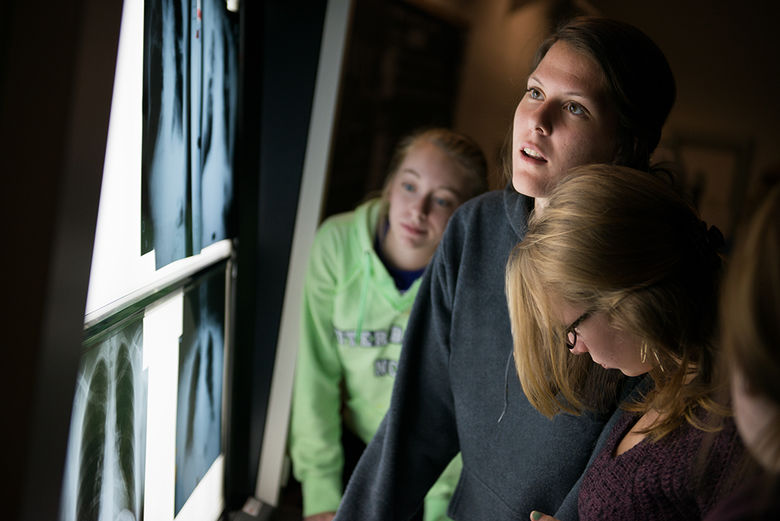Radiology is a science combining medical imaging technology with patient care. Radiographers apply their knowledge of physics, anatomy, and physiology to create radiographic images that assist with the examination, diagnosis, and treatment of medical conditions in the body. Radiographers strive to provide quality patient care while limiting radiation exposure to patients, themselves, and others. Radiographers use problem-solving and critical thinking skills to perform medical imaging procedures by adapting the variable technical parameters of the procedure to the condition and age of the patient.
A radiographer can obtain employment in a hospital, outpatient center, urgent care center, or mobile imaging company. While in these settings, the radiographer is responsible for operating radiographic and fluoroscopic units in areas such as diagnostic, the emergency department, the operating room, and portables.
Program Overview
Penn State Schuylkill's Radiological Sciences program is a comprehensive academic and clinical-based curriculum for students interested in becoming a radiographer, otherwise known as an x-ray technologist. Didactic and clinical days typically alternate, with most classes and clinical occurring Monday through Friday during the day (8am – 5pm). While in clinical the students rotate through all radiographic areas, working alongside radiographers to complete competencies required by the American Registry of Radiologic Technologists (ARRT) and program. The program curriculum is driven by the American Society of Radiologic Technologists (ASRT) radiography curriculum and the American Registry of Radiologic Technologists (ARRT) Radiography Examination Content Specifications and Radiography Didactic and Clinical Competency Requirements.
The program begins in the fall of each year and requires 24 consecutive months (including summer sessions) to complete. The program follows Penn State's regular fall and spring academic calendars. The summer semester is 12 weeks and typically begins the third week of May and ends in early August, with holidays on Memorial Day, Juneteenth, and Independence Day.
Students successfully completing the program receive an Associate of Science Degree in Radiological Sciences from Penn State and are eligible to apply for examination with the American Registry of Radiologic Technologists (ARRT) for professional certification in Radiography.
Explore other tabs in this section to learn more about the program.
Many U.S. states and territories require professional licensure/certification to be employed. If you plan to pursue employment in a licensed profession after completing this program, please visit the Professional Licensure/Certification Disclosures by State interactive map.




